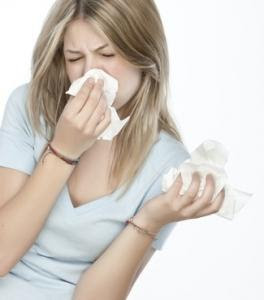
The French Society of Allergology said that for people with allergies, the return is an opportunity to consider desensitization. 20 times more people with allergies can now enjoy a useful treatment for desensitization, a treatment whose benefits and efficacy are largely unknown or underestimated. But today, desensitization is proposed that in an average 20% of patients with rhinitis who visit an allergist and accepted in 58% of cases.
The French Society of Allergology reminds the importance of this therapy in the treatment of allergies: Specific immunotherapy is currently the only treatment likely to modify the natural course of allergic disease, prevent the emergence of new allergic sensitization or a worsening in asthma but also to treat it. Its long-term effects and effectiveness are clear.
Immunotherapy, introduced in 1911, has a policy to administer the substance responsible for the allergen in increasing doses in order to induce tolerance. With a better understanding of immune mechanisms that govern the development of allergy, and standardization of allergens, treatment is very effective today.
To date, more than 500 allergens have been identified and characterized using the techniques of molecular biology (cloning and sequencing). It is therefore possible to produce recombinant allergens by genetic engineering, more efficient in terms of purity, reproducibility, traceability and performance and used for diagnostic and therapeutic. Since 1998, WHO officially recognizes the therapeutic value of allergen desensitization and established an international consensus that defines the standardization of allergenic extracts used and the rules of "good practice" of specific immunotherapy in terms of indications and treatment modalities.
The sublingual desensitization, a form of desensitization is simpler and less restrictive compared to the injection. Since 2009, a new therapeutic class is created with the tablets of allergen immunotherapy, opening new perspectives. If the sublingual desensitization is effective only for certain allergies now it makes treatment much easier.
Other treatments work only on symptoms and are only effective on allergic manifestations, but do not intervene on the cause of the allergy. They no influence on the natural history of disease, and therefore do not "cure" it.
skip to main |
skip to sidebar
Categories
- Allergy (1)
- Beauty tips (15)
- Cancer (5)
- Diabetes (9)
- Diet plans (16)
- General health tips (14)
- Health Insurance (7)
- Pregnancy (13)
- Sexual health (16)
- Sleep (12)
- Stress anxiety (4)
- Weight loss (7)
- Women health (10)
My Blog List
Followers
Popular Posts
-
This study from the University of Michigan, adds to the virtues of saffron and its compound, curcumin. This compound, or rather its mode of ...
-
Multivitamins are preparations that contain vitamins and minerals that complement the nutritional needs of the organization. According to th...
-
The alcohol also called ethanol, is a chemical compound that can be obtained in various ways, mainly by fermentation of sugars derived from ...
-
Relaxation therapy does not provide a systematic response to all anxiety disorders. But it can relieve or reduce a large number of events ex...
-
Nausea that affect many women during the first trimester of pregnancy would it simply the result of unusual delicacy of smell? This is the t...
-
Women who take too much or not enough weight during pregnancy can be reassured of that side: It will not affect any of the cognitive develop...
-
The old men are susceptible to certain diseases that often go unnoticed or are misdiagnosed, and that are linked to sight, hearing and chewi...
-
According to the scientists at Penn State, a few cups of green tea each day can slow weight gain and be a new option, naturally ...
-
More than two million pregnancy tests are sold in pharmacies each year. Thanks to the determination of a specific hormone of pregnancy...
-
Every one knows about the word broken heart, people still connect with the problem of romance. In fact, the broken heart is a phenomenon tha...
Copyright © 2011 Staying Healthy Tips | Powered by Women Health









 05:54
05:54
 Sam
Sam

 Posted in:
Posted in: 









0 comments:
Post a Comment